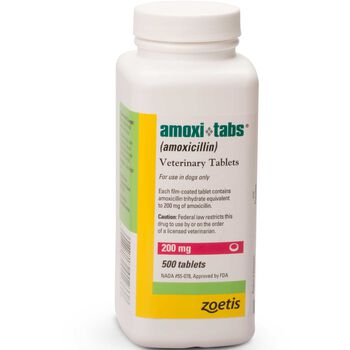Hey there cat lovers! If you’re a proud cat parent, you probably know that our feline friends can sometimes fall ill, just like us humans. Whether it’s a sneeze, an upset tummy, or something more serious, it’s essential to ensure our precious fur babies get the care they need. When it comes to treating bacterial infections in cats, one commonly prescribed medication is amoxicillin. But before you rush to the nearest pharmacy, here’s a word of advice: always consult a veterinarian before giving your cat any medication, including amoxicillin. In this blog post, we’ll delve into the importance of seeking professional guidance and understanding why a veterinarian’s prescription is crucial for your cat’s health. So sit back, relax, and let’s explore the world of amoxicillin for our feline friends!
What Is Amoxicillin?
Amoxicillin for cats is a highly effective antibiotic that is commonly prescribed to treat a wide range of bacterial infections. As part of the penicillin class of antibiotics, it works by inhibiting the growth of specific bacteria responsible for these infections. While amoxicillin is widely recognized for its effectiveness, it is crucial to note that it should only be administered to cats under the guidance and supervision of a veterinarian. Hence, it is imperative to not seek or consider using amoxicillin for cats without a vet prescription. Relying on professional consultation ensures the proper dosage, duration, and appropriate use of this medication, ensuring the health and safety of our feline companions.
Amoxicillin is widely considered one of the most commonly prescribed medications for cats. This antibiotic has proven to be effective in treating various bacterial infections, such a skin and urinary tract infections, and even respiratory illnesses. However, it is important to note that amoxicillin should only be administered to cats under the supervision and guidance of a veterinarian. While there may be instances where owners may consider obtaining amoxicillin for cats without a vet prescription, it is crucial to recognize the potential risks and implications of doing so. Veterinars play a vital role in ensuring the well-being and health of our feline companions, and their expertise in prescribing medications like amoxicillin is invaluable. Thus, seeking the advice of a veterinarian before administering any medication to our cats is always the best course of action.
When it comes to the topic of amoxicillin for cats without a vet prescription, it is crucial to emphasize the importance of responsible and informed use. Amoxicillin should only be administered to cats under specific circumstances and when prescribed by a veterinarian. This ensures not only the effectiveness of the treatment but also prevents any potential side effects or drug interactions that may arise. Strictly following the prescribed dosages is critical to ensure the safety and well-being of our feline friends. By adhering to these guidelines, we can guarantee that amoxicillin will be used appropriately and avoid any unnecessary risks or complications.
Besides being cautious of giving amoxicillin to cats with known allergies or previous adverse reactions to penicillin-type antibiotics such ampicillin or ticarcillin, it is crucial to emphasize the importance of seeking veterinary guidance before administering any medication to our feline companions. While the internet provides a vast array of information, self-diagnosing and self-medicating can be risky and potentially harmful to our pets. Veterinary professionals not only have the expertise to accurately diagnose the underlying health issue but also possess the knowledge to determine the appropriate dosage and duration of treatment for each individual cat. Putting our feline friends’ well-being first, it is always recommended to consult a veterinarian before considering amoxicillin for cats without a vet prescription.
Benefits of an Amoxicillin Prescription for Cats
Amoxicillin for cats is a highly effective antibiotic that aids in combating bacterial infections. These infections can arise from various factors such as injuries, cuts, or even more severe internal issues. Cats, being vulnerable to such infections, require a reliable solution to help restore their health. Thankfully, amoxicillin comes to the rescue, providing a powerful defense against harmful bacteria. By targeting and eliminating these pathogens, amoxicillin assists felines in overcoming their infections and recovering their overall well-being. This medication serves as a crucial tool in the battle against bacterial infections in cats, ensuring their continued health and happiness.
Amoxicillin for cats without a vet prescription should not be considered as it is crucial to consult with a veterinarian before administering any medication to our feline companions. When prescribed by a vet, however, amoxicillin for cats can be an effective and safe treatment option for bacterial infections such as skin or urinary tract infections. Veterinarians have the expertise to determine the appropriate dosage and duration of treatment to ensure the cat’s well-being. They can also identify any potential underlying health conditions or allergies that may interfere with the use of amoxicillin. Ultimately, seeking professional advice and following the vet’s guidance is essential to ensure the proper and responsible use of amoxicillin for the overall health and recovery of our beloved feline friends.
Amoxicillin for cats without a vet prescription should be approached with caution. While it is true that regular dosing of amoxicillin can potentially reduce inflammation and accelerate the healing process in the infected area, it is important to remember that administering any medication to cats without proper veterinary guidance can have serious consequences. Amoxicillin is a powerful antibiotic that requires careful dosage and monitoring to ensure the well-being and safety of our feline friends. Therefore, it is always advisable to consult a veterinarian before considering amoxicillin for cats, as they can accurately assess the situation, provide appropriate dosage instructions, and monitor the cat’s progress throughout the treatment. Prioritizing our cats’ health and seeking professional advice will ultimately lead to their well-being and recovery.
However, the benefits of using amoxicillin for cats extend beyond treating current infections. In addition to its ability to eliminate existing pathogens, amoxicillin may also help prevent further spread of infection and boost the cat’s immune system to make it more resistant to future infections. This can be particularly beneficial for cats that are prone to recurrent or chronic infections. By targeting and eliminating harmful bacteria, amoxicillin not only aids in the recovery process but also strengthens the cat’s natural defenses. Therefore, incorporating amoxicillin into a cat’s treatment plan not only provides immediate relief but also offers long-term benefits by promoting overall health and preventing future infections.
Potential Side Effects of Amoxicillin in Cats
Amoxicillin for cats is widely recognized as an effective antibiotic in combating bacterial infections. With its potency, veterinarians often prescribe this medication to address various ailments in feline companions. However, it is crucial to be aware of the potential side effects that may arise from using amoxicillin. While this medication can successfully tackle bacterial infections, some cats may experience adverse reactions, such as gastrointestinal disturbances, allergic reactions, or even antibiotic resistance. Despite these possible drawbacks, when administered under professional guidance and in appropriate dosages, amoxicillin remains a valuable tool in promoting the health and well-being of our feline friends.
When it comes to using amoxicillin for cats, it is important to be aware of potential side effects. While this medication can be effective in treating various infections, there are some possible adverse reactions that owners should be mindful of. These side effects may include nausea, which can cause discomfort and uneasiness in feline patients. Vomiting is another possible side effect that may occur, leading to further distress for the cat. Additionally, it is not uncommon for cats to experience a loss of appetite when taking amoxicillin. This can be concerning for owners, as proper nutrition is crucial for the overall health and well-being of their pets. Lastly, diarrhea may also be a side effect associated with the use of amoxicillin in cats. This can lead to dehydration and discomfort for the feline patient. While these side effects are possible, it is essential to remember that not all cats will experience them and consulting with a veterinarian is highly recommended.
Amoxicillin is an antibiotic commonly prescribed for cats to treat various bacterial infections. However, it is essential to emphasize that amoxicillin should only be used under the guidance and supervision of a veterinarian. Administering amoxicillin to cats without a vet prescription can have severe consequences. The potential side effects range from mild discomfort to life-threatening conditions. Additionally, your cat may experience more serious side effects such as an allergic reaction or kidney or liver damage. Therefore, it is crucial to prioritize your pet’s health and consult a veterinarian before considering any medication, including amoxicillin, for your cat.
Moreover, it is crucial to note that amoxicillin for cats should never be administered without a vet prescription. While it may be tempting to self-diagnose and treat our feline companions at home, the potential side effects of amoxicillin for cats should not be taken lightly. Seeking medical attention for any symptoms that may occur is essential to ensure the health and safety of our beloved pets. Only a qualified veterinarian can accurately diagnose and prescribe the appropriate dosage of amoxicillin tailored to the specific needs of each individual cat. By following these guidelines, we can prioritize the well-being of our feline friends and provide them with the care they truly deserve.
When to Consult a Veterinarian for an Amoxicillin Prescription
If you notice that your beloved feline companion is displaying worrisome symptoms like fever, a decreased appetite, unexpected weight loss, or episodes of vomiting and diarrhea, it is imperative to seek professional advice without delay. The first step should be consulting with your veterinarian, who can assess the situation and suggest appropriate treatment options. One such option that may be considered is the prescription of amoxicillin. This widely used antibiotic has demonstrated effectiveness in combating infections in cats. By targeting and eliminating the harmful bacteria responsible for the illness, amoxicillin can aid in restoring your cat’s health and well-being. Remember, timely intervention and proper medical guidance are crucial in ensuring a successful recovery for your furry friend.
Amoxicillin, a commonly prescribed antibiotic, has proven to be highly effective in treating a range of bacterial infections in cats. This versatile medication is particularly beneficial in combating respiratory infections like feline bronchitis and ear infections like otitis media. However, it is crucial to note that obtaining amoxicillin for cats without a veterinarian prescription is not recommended. Veterinarians play a vital role in ensuring the health and well-being of our feline companions, and their expertise is invaluable when it comes to determining the appropriate dosage, duration, and potential side effects of any medication. Seeking professional guidance ensures that our beloved cats receive the best possible care and treatment.
When it comes to the topic of amoxicillin for cats, seeking the professional advice of a veterinarian is crucial. Not only can a veterinarian prescribe amoxicillin for feline health issues, but they can also play a vital role in identifying any potential allergies or underlying conditions that may affect your pet’s well-being. With their expertise and knowledge, veterinarians can conduct necessary tests and examinations to ensure that amoxicillin is the appropriate medication for your cat’s specific needs. By taking into account any potential allergies or underlying conditions, veterinarians can create a comprehensive treatment plan that addresses the root causes of your pet’s health concerns and provides the best possible outcome. Trusting your veterinarian to prescribe amoxicillin and evaluate your cat’s overall health is an essential step towards ensuring their overall well-being and happiness.
Thus, it is essential to consult with a veterinarian before administering amoxicillin to your cat, ensuring that the correct dosage is determined based on their specific needs and condition. While it may be tempting to try and treat your pet’s infection on your own, it is crucial to remember that amoxicillin for cats should never be given without a vet prescription. Only a qualified professional can accurately assess your cat’s health and prescribe the appropriate amount and duration of medication to ensure their well-being. By seeking veterinary guidance, you can provide your furry companion with the necessary care they require and achieve the optimal outcome in their treatment.
Best Practices for Administering an Amoxicillin Prescription
When it comes to administering amoxicillin to your beloved feline companion, the utmost care and diligence are required. Your veterinarian’s instructions serve a pivotal role in ensuring the well-being of your cat, making it crucial to adhere to them closely. The correct dosage must be meticulously measured and administered at the appropriate times. This antibiotic, amoxicillin, holds immense potential in combating various bacterial infections in cats, ranging from respiratory issues to urinary tract infections. However, without adhering to the prescribed dosage and schedule, its efficacy may be compromised, leaving your cat vulnerable. Hence, staying attentive and meticulous throughout the treatment process is vital to provide your cat with the best chance of recovery. Trusting your veterinarian’s expertise and maintaining an unwavering commitment to following their instructions will help ensure your feline friend receives the optimal benefits of amoxicillin therapy, promoting their overall health and happiness.
When it comes to amoxicillin for cats, it is crucial to remember that, similar to any antibiotic, this medication can potentially lead to side effects in your feline companion. Such side effects may manifest in the form of vomiting, diarrhea, or a loss of appetite. Hence, it is vital to closely observe your cat after administering amoxicillin and be vigilant for any of these symptoms. Should any of these adverse reactions occur, it is imperative to promptly reach out to your veterinarian without delay. It is worth mentioning that obtaining amoxicillin for cats without a vet prescription is not advised, since the expertise and guidance of a professional are indispensable for ensuring your cat’s health and safety.
When considering the use of amoxicillin for cats without a vet prescription, it is crucial to prioritize the well-being of your furry friend. Remember, your cat’s health should always be the utmost concern. While it may be tempting to administer this medication without consulting a veterinarian, it is important to understand the potential risks involved. Even though amoxicillin is commonly used in both human and veterinary medicine, it should only be given to cats under professional guidance. Additionally, it is crucial to monitor your cat’s progress during treatment and be attentive to any changes in behavior or appetite. Any unexpected alterations should be reported immediately to your trusted veterinarian. By prioritizing your cat’s health and involving a professional, you can ensure the safe and effective use of amoxicillin for your feline companion.
Furthermore, it is crucial to understand that amoxicillin prescriptions should always be completed when administering the medication to cats, regardless of whether the symptoms for which it was prescribed have resolved. This is not only vital for ensuring the full effectiveness of the treatment but also to prevent any potential relapses from occurring. Cats can be notoriously difficult to diagnose accurately, and incomplete courses of amoxicillin may lead to the persistence or resurgence of underlying infections. By diligently completing the prescribed course, cat owners can provide their feline companions with the best chance for a complete and successful recovery.
The Difference Between Human and Veterinary-Approved Medications
When considering amoxicillin for cats, it is crucial to recognize the distinction between human and veterinary-approved medications. Amoxicillin, a widely used antibiotic in human medicine FDA-approved, may not be the ideal choice for cats due to potential variations in dosage and side effects compared to what is deemed safe for humans. While human medicine has its legitimacy, veterinary medicine takes into account the specific needs and physiological differences of feline patients. Therefore, relying on the guidance of a veterinarian who can prescribe suitable medications tailored for cats is essential in ensuring their well-being and health.
Veterinary-approved medications, such amoxicillin for cats, are carefully crafted to cater to their unique requirements, aiming to offer optimal care. However, it is crucial to seek guidance from a veterinarian before administering any medication to your feline companion. By doing so, you guarantee the correct dosage and minimize the likelihood of adverse effects. While it may be tempting to acquire amoxicillin for cats without a vet prescription, this practice should be avoided. Only a licensed professional can assess your cat’s health condition and determine the appropriate treatment, ensuring the utmost safety and well-being of your beloved pet.
Amoxicillin is commonly prescribed for cats to treat bacterial infections. However, it is crucial to note that this medication should only be administered under the guidance of a veterinarian. While amoxicillin can be beneficial, it has the potential to cause serious side effects in cats. These may include an upset stomach, vomiting, and diarrhea, which can be harmful if not promptly addressed. Therefore, it is imperative to have a discussion with your vet regarding any potential risks associated with amoxicillin for cats. It is essential to avoid obtaining this medication without a vet prescription, ensuring the safety and well-being of your feline companion.
Moreover, when considering the use of amoxicillin for cats, it is crucial to understand the distinct differences in their physiology and metabolism compared to humans. While amoxicillin is commonly prescribed for various bacterial infections in humans, it may not always be the suitable choice for feline companions. Consulting with a veterinarian is of utmost importance to determine the most appropriate course of treatment for a cat’s specific condition. Veterinary-approved medications, such tailored specifically for cats, take into account their unique physiological needs and potential sensitivities. Trusting the expertise of a veterinarian and opting for their recommended medications is the best way to ensure the safety and well-being of our beloved feline friends.
Alternatives to Amoxicillin for Cats
Amoxicillin is a widely used type of penicillin antibiotic that is often prescribed for cats to treat various infections. However, it is crucial to note that administering any medication to feline companions should always be done under the guidance and supervision of a veterinarian. While amoxicillin can be effective in treating certain infections in cats, it is essential to seek professional advice before using it. It is worth mentioning that purchasing amoxicillin for cats without a veterinary prescription is not recommended. This is because professional veterinary care ensures the accurate diagnosis of the ailment, the proper dosage of medication, and the monitoring of potential side effects or drug interactions. In addition, it allows the vet to explore other treatment options that may be better suited to the specific needs of the cat. Remember, the well-being and safety of our beloved feline friends should always be prioritized, and seeking professional veterinary advice is integral to their overall health.
When it comes to treating bacterial infections in cats, there are various antibiotics available, such cephalexinan and clavamox. However, one particular antibiotic that is commonly used for feline infections is amoxicillin. Amoxicillin is a broad-spectrum antibiotic that belongs to the penicillin group. It is highly effective in combating bacterial infections in cats, including those affecting the skin, respiratory tract, urinary tract, and even dental infections. This medication works by inhibiting the growth of bacteria and preventing their further spread within the body. Amoxicillin for cats is usually administered orally in the form of tablets or liquid suspension, making it convenient for pet owners to give to their feline friends. It is crucial to follow the veterinarian’s prescribed dosage and treatment duration to ensure the best results and to prevent antibiotic resistance. Additionally, it is vital for pet owners to complete the full course of treatment even if their cat’s symptoms improve before completion. Amoxicillin is generally well-tolerated in cats, but like any medication, it may have potential side effects such diarrhea or allergic reactions. Therefore, regular monitoring of your cat’s health during treatment is essential. Overall, amoxicillin proves to be an effective and reliable antibiotic in treating bacterial infections in cats, providing relief and promoting their well-being.
When cats are prescribed amoxicillin to treat infections, veterinarians may suggest incorporating probiotics or prebiotics into their treatment plan. These supplements can aid in strengthening the cat’s natural immune response, ultimately assisting them in fighting off the infection more effectively. Probiotics contain beneficial bacteria that contribute to a healthy gut flora, which plays a crucial role in supporting the immune system. By introducing these friendly bacteria, probiotics can help maintain a balanced gastrointestinal environment, preventing potential side effects of antibiotics such diarrhea or digestive upset. On the other hand, prebiotics act like a fertilizer for the existing good bacteria in the cat’s gut, promoting their growth and overall health. By combining amoxicillin with probiotics or prebiotics, pet owners can help their feline companions in maintaining a robust immune system and maximizing the effectiveness of the antibiotic treatment. Consulting with a veterinarian about incorporating these supplements into the cat’s medication regimen is essential to ensure the best possible outcome for the cat’s health.
However, while natural remedies such apple cider vinegar, honey, and various herbs like echinecea, goldenseal, and garlic can be beneficial in treating infections in cats, it is essential to approach these treatments with caution. Although these remedies may possess certain antimicrobial and anti-inflammatory properties, they should not be used in place of prescribed medications like amoxicillin. Amoxicillin is a potent and reliable antibiotic that is specifically formulated to combat bacterial infections in cats. Veterinars carefully consider the health condition of the feline patient and determine the appropriate dosage of amoxicillin that ensures maximum efficacy and minimal side effects. Therefore, it is always advisable to consult a veterinarian before incorporating any natural remedy into your cat’s treatment plan, ensuring the most appropriate and effective solution to promote your feline companion’s well-being.
Warning Signs That Indicate the Need for Veterinarian Intervention
When considering the use of amoxicillin for cats, a responsible cat owner should be aware of the warning signs that may indicate the need for veterinarian intervention. These warning signs consist of various symptoms such vomiting, diarrhea, decreased appetite, and lethargy. It is important to closely monitor any feline companion undergoing amoxicillin treatment and take immediate action if any of these symptoms manifest. Vomiting can be a cause for concern, especially if it becomes persistent or severe. Similarly, diarrhea should not be taken lightly, particularly if it continues for an extended period or is accompanied by blood in the stool. A noticeable decrease in appetite might indicate that the amoxicillin is negatively affecting the cat’s digestive system or overall well-being. Moreover, if the cat appears unusually tired or lacks energy, it may suggest a potential adverse reaction to the medication. In any case, if these warning signs emerge, it is crucial to promptly consult with a veterinarian to ensure the cat’s health and safety are properly addressed.
If you are considering using amoxicillin for cats without a vet prescription, it is crucial to be aware of the potential risks and the importance of professional guidance. While amoxicillin can be beneficial in treating certain bacterial infections in cats, self-administering this medication can lead to serious consequences. If you notice persistent symptoms in your feline even after administering amoxicillin, it is imperative to seek immediate veterinary help. A licensed veterinarian will be able to evaluate whether the dosage of the medication needs adjustment or if additional treatment is required to address your cat’s health condition effectively. Remember, prioritizing the well-being of your pet by seeking proper medical advice and treatments is of utmost importance.
All in all, it is crucial to recognize that in certain situations, relying solely on over-the-counter amoxicillin may not suffice in effectively addressing your cat’s infection. This further highlights the significance of seeking guidance from a qualified veterinarian to guarantee accurate diagnosis and explore appropriate treatment options for your beloved pet. While it may be tempting to opt for amoxicillin for cats without a vet prescription, it is important to prioritize your cat’s health and well-being by consulting a professional who possesses the necessary expertise and knowledge. By doing so, you can ensure that your feline companion receives the most effective and suitable treatment, offering them the best chance for a speedy recovery.
Preparing For Your Vet Visit: What to Expect
Before you consider giving amoxicillin to your cat without a vet prescription, it is crucial to educate yourself about the potential risks and dangers involved. While amoxicillin is a commonly prescribed antibiotic for cats, it should only be administered under the guidance of a licensed veterinarian. Self-diagnosing and self-medicating can have serious consequences for your feline companion’s health. A vet visit is necessary to properly assess your cat’s condition, determine if amoxicillin is indeed required, and prescribe the appropriate dosage. Your vet will take into account your cat’s medical history, including any allergies or sensitivities, to ensure the safe and effective use of this medication. It is essential to prioritize your cat’s well-being and seek professional advice rather than attempting to treat them on your own.
If you are considering giving amoxicillin to your cat without a vet prescription, it is important to understand the potential side effects of this medication. By being aware of these side effects, you can better evaluate if amoxicillin would be beneficial for your pet. Common side effects of amoxicillin for cats can include vomiting, diarrhea, and loss of appetite. While amoxicillin may be commonly prescribed for various feline infections, it is essential to consult with a veterinarian before administering any medication to your cat. A professional opinion will ensure the safety and well-being of your furry friend.
Read also: Paracetamol 250 Mg and Mefenamic Acid 100 Mg Suspension
In conclusion, when deciding to administer amoxicillin to your cat, it is crucial to prioritize your pet’s well-being by closely adhering to the guidelines provided by your veterinarian. By ensuring that you understand the specific dosage and timing required, you can effectively contribute to your cat’s recovery process. Remember that the administration of amoxicillin should never be taken lightly, and seeking professional guidance is essential to ensure its safe and effective use. Properly following instructions will not only maximize the potential benefits of amoxicillin but also minimize any potential risks or adverse effects. By being diligent and responsible, you can help your feline companion regain their health and well-being.







